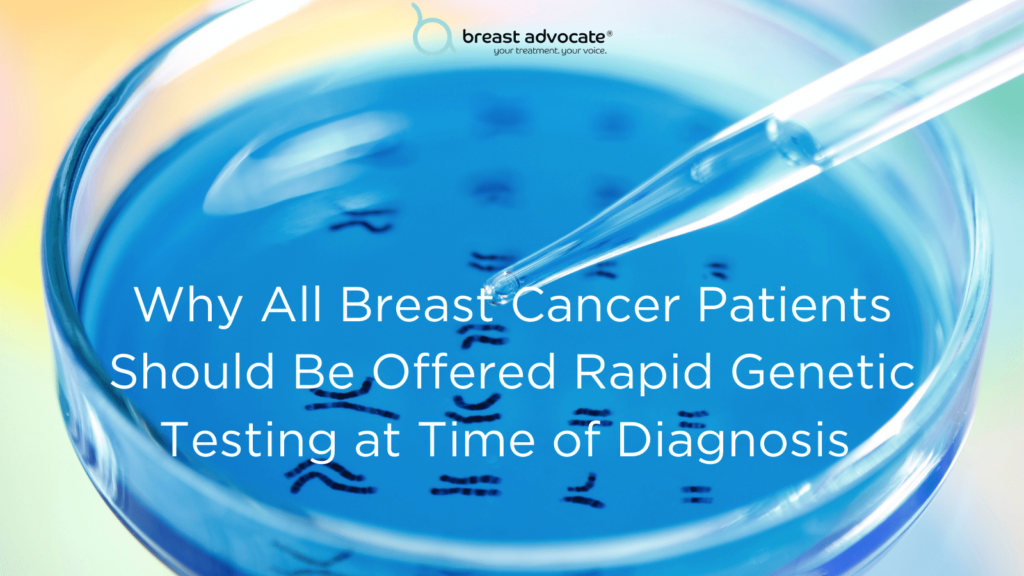Why All Breast Cancer Patients Should Be Offered Rapid Genetic Testing at Time of Diagnosis
A breast cancer diagnosis brings with it a need for many different treatment decisions. One of the first decisions to consider, is which operation to have to remove the tumor. Surgical options include a lumpectomy, oncoplastic surgery, a mastectomy, or even a bilateral mastectomy (removal of bth the cancer breast and healthy breast). Many women, particularly in the US, often find themselves trying to decide between the least invasive approach, a lumpectomy, or the most aggressive, a bilateral mastectomy with or without breast reconstruction.

Factors such as tumor size, breast size, the location of the tumor, and the type of breast cancer can greatly impact which surgery is recommended. Patients should be given all options and discuss the pros and cons of each procedure with their healthcare team to determine which treatment plan best serves their individual needs.
Bilateral Mastectomy Recommended for Patients at High Risk Due to Genetic Mutation
For patients with a genetic mutation (such as a BRCA1 or BRCA2 mutation), who have a much higher risk for developing cancer in the future, the removal of both breasts is usually recommended as it significantly reduces the risk of another breast cancer in the future. Patients can of course opt to save their healthy breast and instead have close follow up including 6-monthly MRIs, and can also take risk-reducing medication like Tamoxifen.
However, not all patients undergo genetic testing prior to breast cancer surgery to even know they are at higher risk of developing another breast cancer in the future.
Rapid Genetic Testing Offers Patients More Insight When Planning Breast Cancer Surgery
A study published in Annals of Surgical Oncology found that women with a recent breast cancer diagnosis who are offered a rapid genetic test, and who received their results prior to their initial breast surgery, oftentimes chose to have a bilateral mastectomy. In the study, more than 1,000 women were offered a rapid genetic test following a breast cancer diagnosis. Of those who tested positive for a BRCA mutation, over 70% chose to have a bilateral mastectomy, with or without reconstruction.
These test results demonstrate the need for further evaluation of the current model of breast cancer care. Currently, not all women with a breast cancer diagnosis are routinely offered genetic testing. Only those who also have a family history of breast cancer, or are very young at the time of diagnosis are typically referred to a genetic counselor for gene testing.
By offering all women the option of a rapid genetic test at the time of diagnosis, patients would be better informed when making surgical treatment planning decisions.
Personalized Treatment Recommendations in the Palm of Your Hand
The Breast Advocate® app is another great resource for patients weighing their options for breast cancer surgery or breast reconstruction.
Co-created by leading specialists and patient advocates, Breast Advocate® is a free breast cancer surgery app that provides ALL your surgical options along with evidence-based recommendations, personalized for you.
Download the free app HERE.






